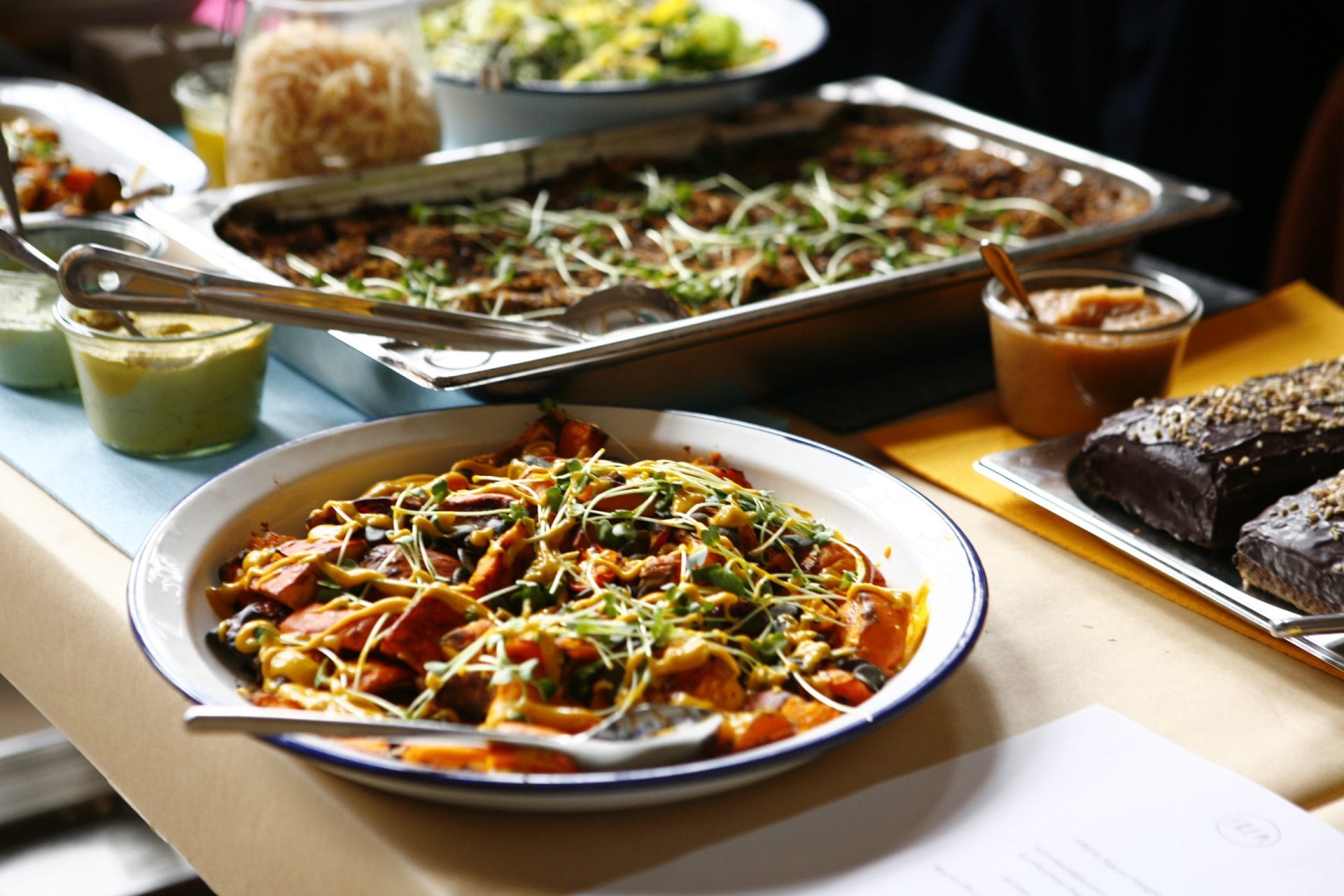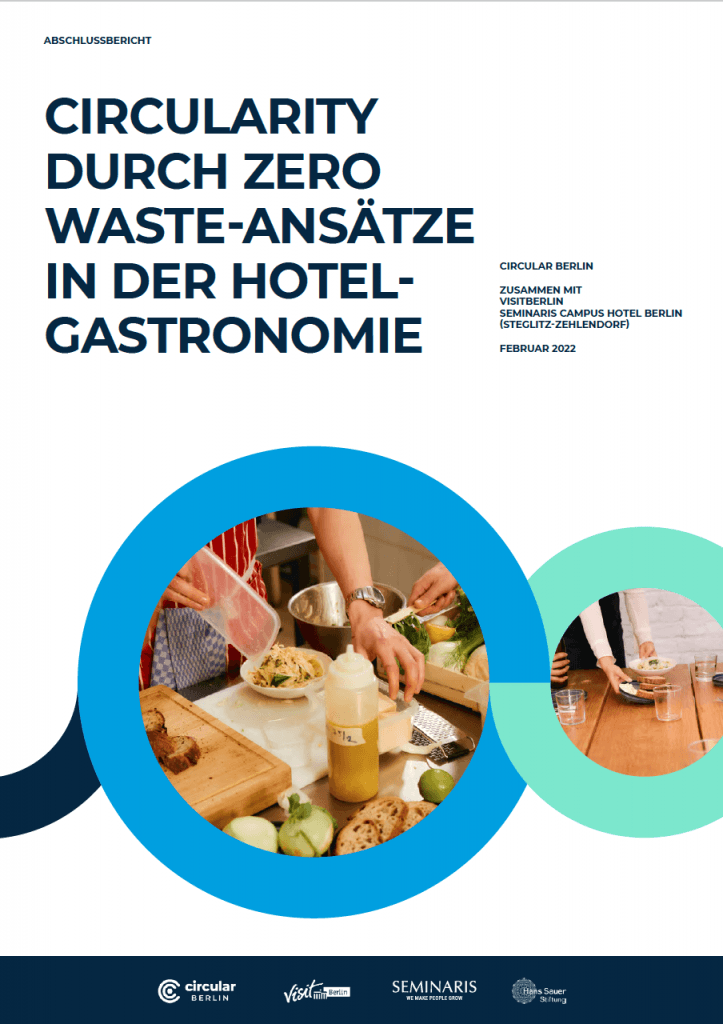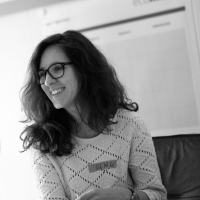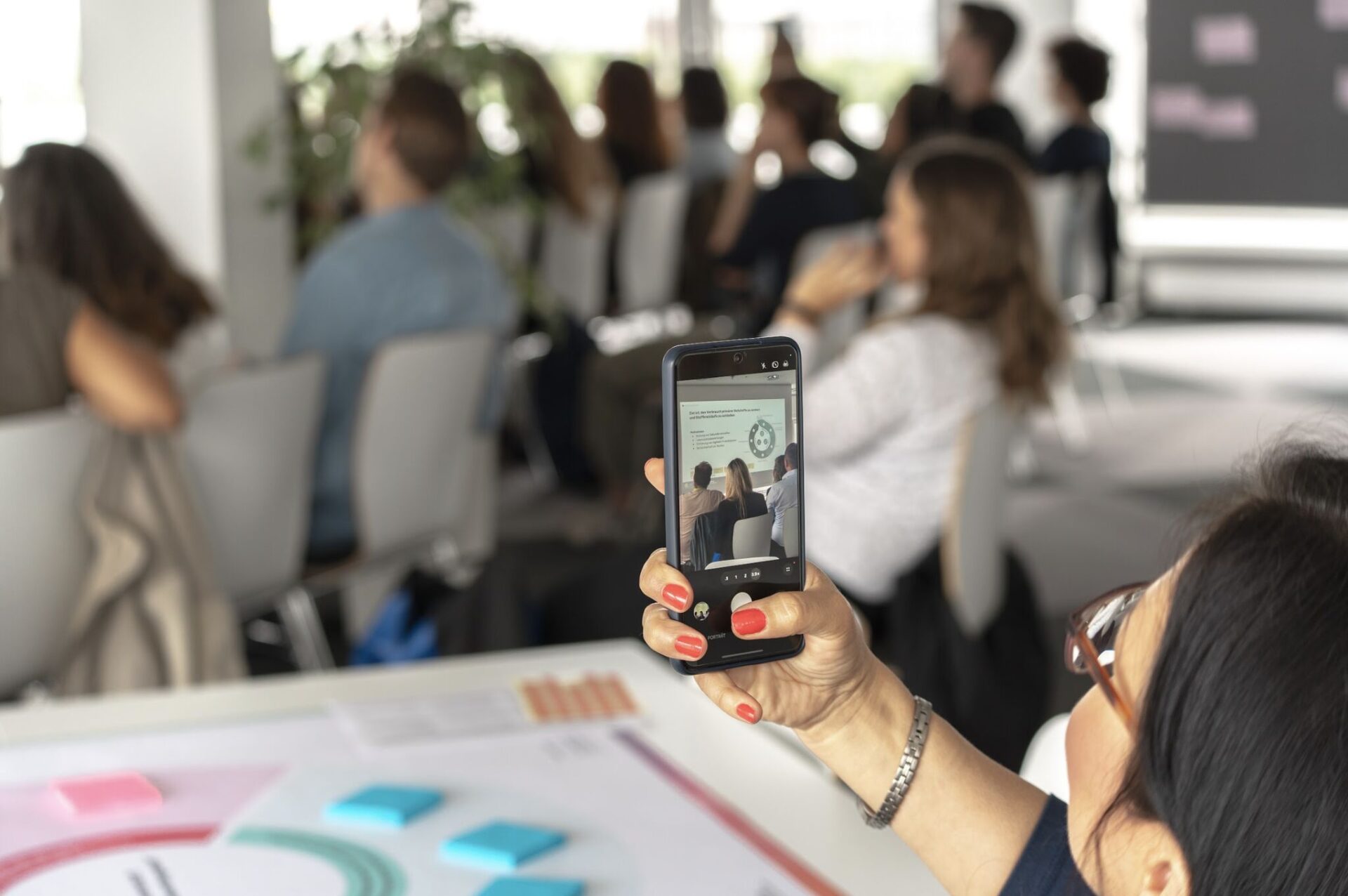The project aims to explore the best practices in the hospitality industry with a focus on the kitchen and the issue of food waste. The goal is to identify the key factors that will drive the transformation of kitchens in the hospitality sector towards a circular economy.
FUNDER
VisitBerlin (Phase 1 & 2), Hans Sauer Stiftung (Phase 1), Hiba Impulse (Phase 2)
PARTNERS
NEW STANDARD.STUDIO, Seminaris Hotel
DATE
Phase 1: December 2021 – February 2022
Phase 2: December 2022 – June 2023
The challenge
Tourism and hotels have an impact on sustainability: through their consumption of food, water and energy, through the generation of waste, through the products they buy and the logistics involved, and through their relationship with the environment and local communities. It is estimated that hotels and restaurants that do not have a food waste monitoring system waste 3-8 times more than they think.
Our approach
The current pilot project aims to focus on food supply and processing activities. This primarily concerns the kitchen, restaurants, procurement (food) , as well as related activities in the hotel gastronomy.
The overall visionary goal of the project is to advance the transformation of hotel gastronomy further towards circularity. This means to go beyond waste prevention and resource saving, and to instead look at the hotel gastronomy both as a stand-alone system and as part of a larger system and network in order to optimise material and resource flows in terms of their circularity.
The project is divided into two phases:
- Phase 1: Content research on the topic of zero food waste in hotel gastronomy. Report writing of “Circularity through zero waste approaches in hotel gastronomy”. The report introduces zero waste and circular economy in hotel gastronomy and recommends measures for action.
- Phase 2: Cooperation with Seminaris Hotel as a partner to test and validate the measures to implement circularity in the kitchen. User education and research to determine the system boundaries, challenges and potentials. Workshops with Seminaris Hotel were carried out to provide training about the zero food waste approach based on the report from phase 1, and to identify the opportunities for implementation. The workshops cover the topics of food purchasing and storage, preparation and processing, communication, disposal and further processing, and management.
The outcomes
The core element of the project is the transfer of knowledge: first from Circular Berlin and experts to Seminaris hotel, second, to the public also in the form of online learning materials which will be published on TourismusHub Berlin. This will collect knowledge and experiences of the project participants and make recommendations of approaches and measures regarding their feasibility and impact.
Find a course
- Log into to TourismusHub Berlin
- Proceed to Nachhaltigkeit & Resilienz courses area
- Click on Kreisläufe in der Hotel-Gastronomie
- Enjoy your learning!
Further steps
The result will be a guideline that shows possibilities, outlines potentials, and clearly presents concrete measures. This helps the hotel gastronomy (and restaurants) to take action and to take the first important steps towards a circular economy in the tourism sector. In this way, the industry will emerge in a sustainable and future-oriented manner and Berlin’s hotel and restaurant businesses will be able to tap into the growing market of environmentally conscious travelers. The shared and publicly accessible knowledge enables all hotels to become active in a self-determined way.







